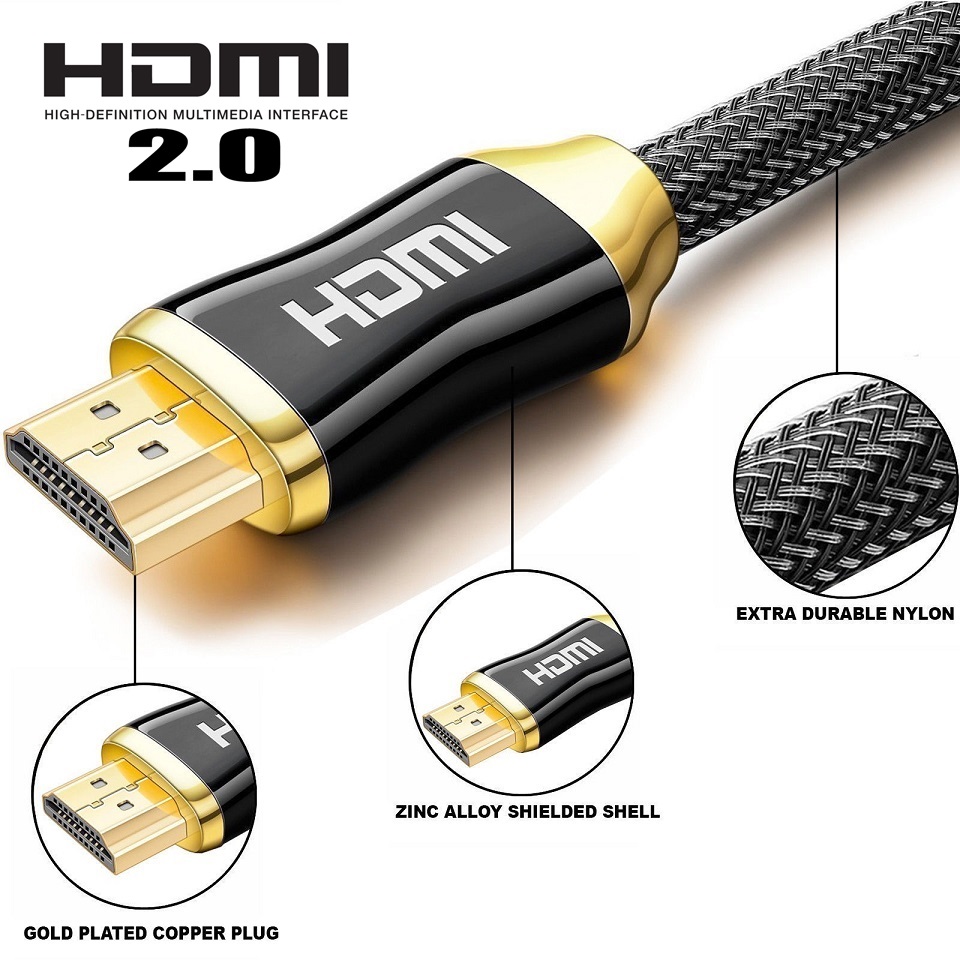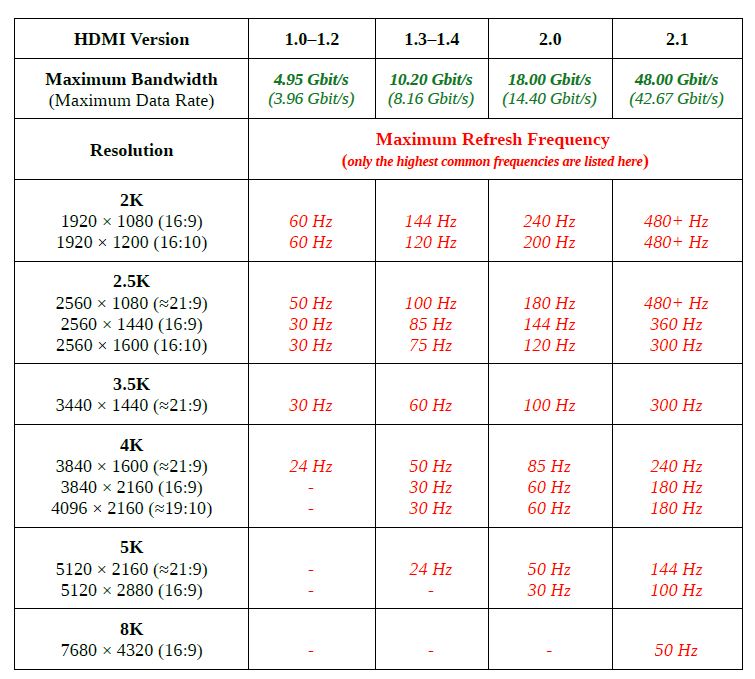What does HDMI means?

HDMI stands for High Definition Multimedia Interface. In the past, digital signals from a certain source (DVD player, VCR, etc.) had to be converted to analog to be displayed on TV, resulting in a loss of signal quality. Today we have HDMI for this. HDMI is a pure digital protocol which can feed signals digitally from a source to the TV (or other digital receiver), without loss of quality.
Main HDMI Versions:

Cabling And Compatibility
HDMI supports high-resolution video and multi-channel audio through a single-cable (HDMI Cable) connection. Even though HDMI cables do not have versions in theory, but their bandwidth capability does really matter when actually using HDMI cables. High resolution and refresh rate devices require better rated cables.
Faster HDMI cables allow for higher refresh rates at different video resolutions. For example, 60Hz is an adequate refresh rate for 4K HDTV, but game players may prefer higher refreshing rate for a smoother on-screen experience.
High-speed HDMI cables are also necessary for taking advantage of the HDR (High Dynamic Range) technology built into 4K TVs and Blu-ray players.
Refresh rate, resolution and color depth are three major factors of the bandwidth definition, to make it simply, Bandwidth can be roughly estimated as Resolution * Refresh * Color Depth, this is not exactly accurate, but it gives you a rough image of bandwidth.
Traditional Types of HDMI Cables:
Standard HDMI Cable: With bandwidth capacity of up to 5 Gbps. It is optimized for HDMI versions 1.0 to 1.2a.
High-Speed HDMI Cable: This type of cable is designed to handle video resolutions of 1080p and 4K (30 Hz) as well as provide support for 3D and Deep Color. Bandwidth transfer speeds up to 10 Gbps are supported. It is optimized for HDMI versions 1.3 to 1.4a.
Premium High-Speed HDMI Cable: This cable type is designed for reliable transfer of 4K/UltraHD resolution video, including 4K/60 Hz, HDR, and expanded color range. Cable bandwidth support is 18Gbps and is optimized for HDMI versions 2.0/a/b.
Ultra High-Speed HDMI Cable: This cable type includes all of the capabilities of the other cables with added support for 8K video with HDR and even 10k resolution. It supports up to 48Gbps bandwidth and is less susceptible to EMI (electromagnetic interference) caused by some wireless devices. This cable type is optimized for HDMI version 2.1.
In the market, to make it easier to understand, some cables are simply advertised as "HDMI v1.4 cable", "HDMI 2.0 cable" or "HDMI 2.1 cables", these names are not that scientific, but they are practical and pretty easy to remember.
Do I Need a Special HDMI Cable For The New TV?
Honestly it depends on the capability (i.e. bandwidth) of your current HDMI cable. Generally, 4K UHD signals require a faster HDMI cable than what 1080P HD signals require, and 8K UHD signals requires even more faster HDMI cables.
[The End]
.

